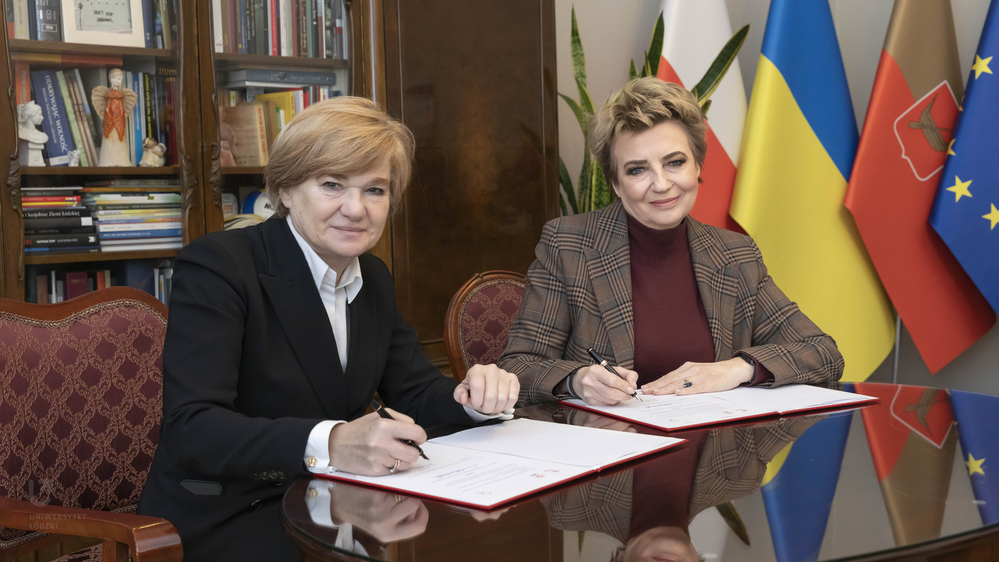 Prof. Elżbieta Żądzińska and Hanna Zdanowska (Photo: Maciej Andrzejewski, Communications and PR Centre)
Prof. Elżbieta Żądzińska and Hanna Zdanowska (Photo: Maciej Andrzejewski, Communications and PR Centre)
Joint ambition
Over the years the city has been a destination for thousands of local and international students that chose the University of Lodz to receive education. Many of them later found employment here and have been calling Lodz home ever since. Jointly we managed to create an environment that provides for a culturally interesting, economically successful and educationally stimulating community to thrive. Also, a number of social projects have been implemented jointly so far and building on this fruitful cooperation we want to further jointly develop the idea of engaged research that is created for, with and within our community.
Within the post-industrial cities, it is highly important that universities and municipalities work closely together on innovative research and education to face challenges related to diversity, security and social inclusion. Only in that way, the descendants of generations of workers that have contributed to these post-industrial cities, such as the children and grandchildren of workers in the steel mines, automobile, textile and petrochemical industries, trade harbours and port cities, can be empowered.
Driven by this ambition, the ten universities: University of Bilbao, Bochum, Cork, Istanbul, Liege, Lodz, Malmö, Oulu, Rotterdam, and Zagreb will work together within the European University of Cities in Post-Industrial Transition (UNIC) initiative. And within the initiative, it is of the utmost importance that these universities can build on a close cooperative relationship with the municipalities and City Boards, in which they are embedded.
University of Lodz in the UNIC Alliance
In 2022 University o Lodz joined the European University of Post-Industrial Cities – (UNIC)
UNIC – European University of Post-Industrial Cities – is one of 44 alliances of European Universities. European Universities are transnational alliances that will become the universities of the future, promoting European values and identity, and revolutionising the quality and competitiveness of European higher education. They will do so by joint implementation of innovative solutions in the field of education and science and deep institutional integration.
The collaborative project focuses on the challenges faced by post-industrial cities, the role of universities in their transformation and building the potential of cities in key areas such as: social inclusion, diversity, sustainable development.
